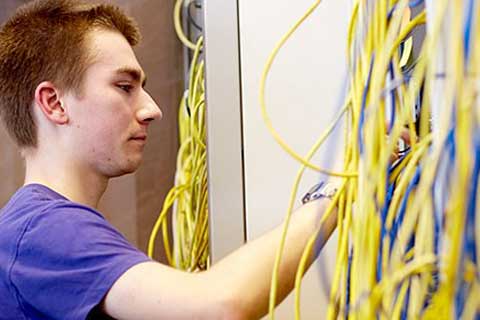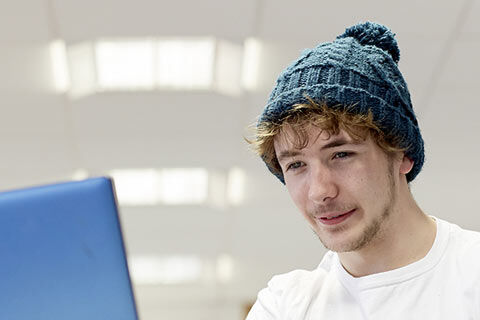
Academic Writing Workshops (Co-developing STEM-related papers for publication)
Currently viewing course to start in 2024/25 Entry.
Learn how to write a research paper for publication, including how to convert research ideas, project outputs, organisation achievements and research progress into a high-quality paper for publication.
- Level CPD
- Study mode Short Course
- Award N/A
- Start date October 2024
- Subjects
- Location City Centre
This course is:
Open to International Students
Overview
Developing and writing a research paper has been proposed as a challenging task in academia and industry. This workshop has been designed as a response to mitigate this challenge by providing an opportunity to learn how to write a paper for publication, how to convert research ideas, project output, organisation achievements and research progress into a research paper in collaboration with other peers, identified during the workshop and prepare a high-quality paper for publication.
Why should you attend this course?
The workshop helps you to learn how to publish a research paper, initiate ideas, start to write, and prepare the first draft of the paper during the workshop. Moreover, the workshop facilitates several sessions for participants to help each other getting their research works published, by sharing their research experiences, implementing the learnings from the workshop, and getting support from their tutor. The target is to (nearly) submit at least one research paper per group at the end of the workshop.
The workshop sessions helps you to comprehend the meaning and identification of research gap, research question, aim, objectives, novelty, contribution, and so on. The course also provides an assistance to structure a research paper, do a literature review, primary research, data generation, analysis, and reporting techniques, discussion of your findings, choosing venue for publication, and in fact everything required to know and implement to publish a paper from start to end.
The course is also benefited from LEGO® Serious Play methodology to maximise interaction among participants for initiation, facilitation of sharing research ideas with metaphors, and structuring the problems for further research on the generated topics.
Who should attend this course?
The workshop will be useful for anyone who wish to publish, regardless of having done it before or not. You should particularly attend the workshop if,
- You have an idea to write a paper but do not know how to start? Where to submit? How to write academically?
- You have finished a project and would like to publish the outcome?
- You want to share your thinking with wider audiences?
- You want to publish your progress in a project?
- You want to contribute to research section of your organisation?
- You are a PhD researcher but have not published a paper yet.
- You have done a research for your Master or bachelor degree dissertation but have not published it yet.
- You are interested in doing a research and want to have publications in your profile
Course Overview:
The main course is delivered in 8 weeks, comprising 4 workshop sessions (3 hours per week) and 4 group meetings (1 hour per week with tutors and 1 hour per week with members). There is also an optional three months support from tutor, including weekly discussion meetings and guidance until the paper is fully published. You will have an opportunity to bring specific challenges of your project into the course to be discussed and resolved.
STEM refers to Science, Technology, Engineering and Mathematics.

Introducing STEAMhouse
STEAMhouse is a centre for technology, innovation, creative thinking, prototyping and business development. Our £70 million pound building is the home for all of our Computing courses.
Fees & How to Apply
International
Birmingham City University is a vibrant and multicultural university in the heart of a modern and diverse city. We welcome many international students every year – there are currently students from more than 80 countries among our student community.
The University is conveniently placed, with Birmingham International Airport nearby and first-rate transport connections to London and the rest of the UK.
Our international pages contain a wealth of information for international students who are considering applying to study here, including:
- Details of the entry requirements for our courses
- Some of the good reasons why you should study here
- How to improve your language skills before starting your studies
- Information relevant to applicants from your country
- Where to find financial support for your studies.
Facilities & Staff
Our Facilities
We are constantly investing in our estate and are currently in the process of spending £260 million on new learning facilities. This course will be taught at Millennium Point at the City Centre Campus.
The course is supported with a wide range of cutting-edge facilities in the City Centre Campus. We have a state-of-the-art computer games technology lab which contains high-performance PCs, Sony PlayStation development kits and a range of industry standard software including Unity, Unreal and a suite of professional Microsoft development tools.
We also have many open access areas where students can study together and even hire out laptops for use in these spaces and others within the university.
Within the University there are many internationally recognised research teams giving you the opportunity to collaborate with them on exciting interdisciplinary projects.

Computer networking
The laboratories are well-equipped for all our computer networking courses, as well as specialist areas for practical work such as voice-over internet protocol (VoIP), forensic and ethical hacking technologies, wireless and mobile technologies and radio frequency identification technologies to name but a few.

Software development and computer programming
There are a number of open access, software development and computer programming laboratories that can be used to develop systems and programmes, including database management systems such as MySQL, to name but a few.

Systems laboratories
Our embedded systems laboratories are used to develop real-time systems, such as specialist hardware training and development resources, and industrial-standard software development and simulation tools. These include microcontroller software and robotics design and development, to name but a few.

Electronic systems
To underpin the basic principles of electronic systems, we have a well-equipped laboratory of general and specialist test and measurement kits, including powered prototyping development boards, dual power supplies, frequency generators and counters and digital multi-meters to name but a few.
Forensic computing
Our successful development of forensic computing has led to a specialist forensics laboratory that is fully equipped with essential hardware and software for this sensitive area of study. The laboratory includes high-spec PCs with built-in multi interface Tableau write blockers, EnCase and FTK computer forensic software and steganography detection and analysis software, to name but a few.
More on our facilities
Our staff
Dr Vahid Javidroozi
Associate Professor in Smart City Systems
Dr Javidroozi currently serve as an Associate Professor specialising in Smart City Systems and Information Systems Engineering (ISE). His research endeavours encompass a diverse array of projects, notably the development of a business process-centric framework for smart cities, known as "FABS", integrating principles from systems...
More about VahidEnquiries
Enquiries
- Please send all enquiries to Vahid.Javidroozi@bcu.ac.uk






